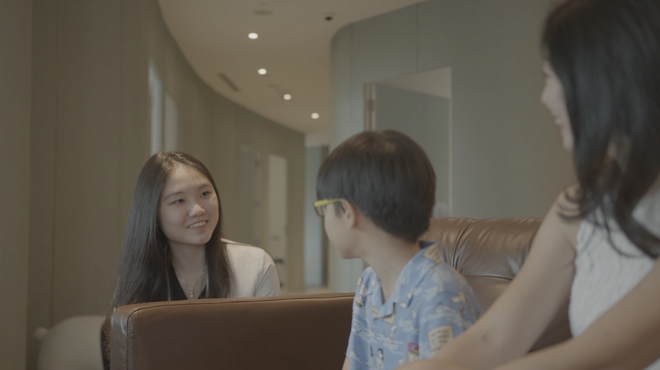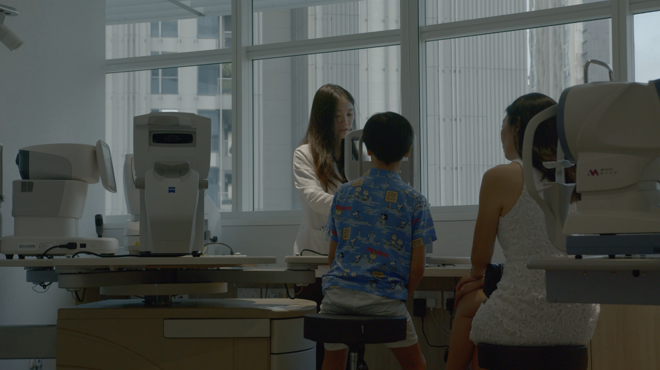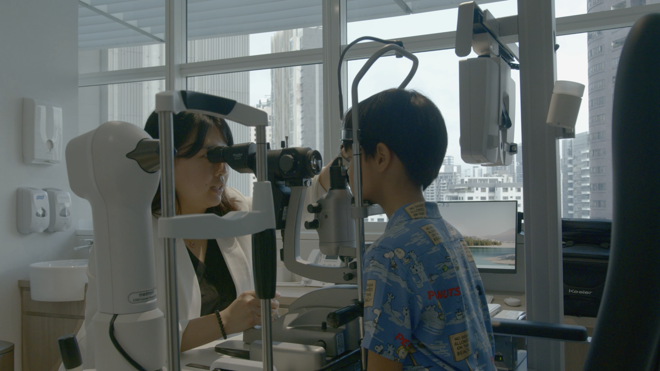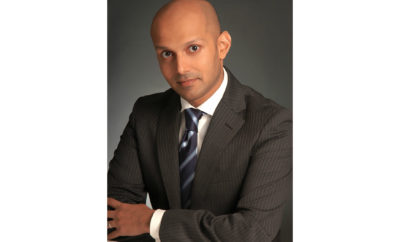
Health x Wellness
Dealing with myopia for young adults and children
Singapore finds itself grappling with a significant health challenge – that of a high prevalence of myopia among children and young adults.
In recent years, Singapore has earned the reputation of having one of the highest rates of myopia worldwide. Studies indicate that almost 80 percent of young adults in their early twenties suffer from myopia.
The impact of myopia extends far beyond blurry vision. Myopia affects one’s ability to see objects clearly at a distance and also increases the risk of developing serious eye conditions later in life, such as glaucoma, cataracts, and retinal detachment.
As myopia continues to afflict a growing number of Singaporean children and young adults, the burden placed on families is substantial. Parents have to manage their children’s myopia, seeking appropriate eye care, and shouldering the financial costs associated with corrective measures such as eyeglasses, contact lenses, and potentially even vision correction surgeries. There is also an emotional component to this situation that should not be overlooked, as parents watch their children struggle with blurry vision and the potential long-term consequences of myopia.

Beyond the family unit, the education system in Singapore is also grappling with this situation. With the majority of students experiencing myopia, schools must address the unique needs of these students to ensure an optimal learning environment. Teachers are tasked with adapting instructional methods to accommodate visual impairments and students’ varying degrees of vision correction. The prevalence of myopia also necessitates regular vision screenings, early detection of eye issues, and timely intervention to prevent academic setbacks and promote equal educational opportunities for all students.
We discuss this challenge of myopia starting young, and how education can have a positive impact for families with Dr Stan Isaacs, Senior Consulting Optometrist and Director, Myopia Specialist Centre.
the Active Age (AA): Why was the Myopia Specialist Centre set-up and how does it complement other public eye healthcare facilities?
Dr Stan Isaacs (SI): Myopia Specialist Centre was conceptualised to provide affordable and accessible eye-care for everyone who needs it.
The growing issue of myopia is a key concern as we are seeing a large number of children getting more myopic at a younger age. The causes of increasing myopia are multi-factorial, and we know that poor reading habits, lack of outdoor activities and incorrect use of myopia control treatments are the main factors.
Myopia, especially high myopia, leads to retinal pathology, early cataracts and glaucoma. While there is no “cure” to myopia, early intervention and treatment plays a major role in controlling myopia progression.
Our set up complements the public eye healthcare facilities. At Myopia Specialist Centre, we have the full-suite of the latest, most advanced eye testing equipment. We are also privy to the cutting-edge myopia treatments and therapies available. The myopia research work done at our centre and the input from our panel of Experts and Scientific Advisory Board enable us to constantly remain at the forefront of myopia control.
AA: What does Myopia Specialist Centre see a dominance/majority of cases in?
SI: Myopia Specialist Centre is a full eye-care provider that covers the basics of good eye practices, specialised myopia control treatments and all aspects of eye examination.
All pathologies that are detected early can be treated with more success.
Unfortunately, in many cases, by the time the patient realises there is a problem with the eye, it may have resulted in vision loss and could be less treatable.
Hence, early detection and intervention is imperative.
Due to the ever-increasing level of myopia, we are seeing an early onset of cataracts, glaucoma, macular degeneration and retinal tears, to name a few, in early adulthood.
Going for regular eye examinations are crucial. We would recommend doing a comprehensive eye examination at least once a year.

AA: How does the Myopia Specialist Centre intend to slow the development of myopia in the population?
SI: We believe that education is a key enabler. To slow the development of myopia, increasing awareness and public education of myopia as a disease is pertinent.
We are doing this through public forums about myopia for the general population and courses where subject-matter experts are invited to impart and share with eye-care practitioners.
We highly encourage parents to bring their children for a full eye examination at our centre to check their eye health and ensure that they are not myopic.
If both parents are myopic, our recommendation is to have their children checked from the age of 3. Early detection of myopia is very important.
Our customised myopia control treatments have proven to be successful in slowing down myopia progression, while allowing the child to have freedom and confidence in playing sports and other lifestyle choices.
AA: What are some of the educational activities Myopia Specialist Centre is looking to do in 2023?
Since the start of the year, we have conducted a Masterclass for eye-care practitioners on Orthokeratology (Ortho-K), which is an effective treatment for myopia control.
We will be doing more of such courses for practitioners who are keen to be trained in myopia control methods.
We will also be organising forums for parents and members of the public who are interested in myopia to join us in a journey to learn more about myopia and cultivating healthy habits for better eye health.
Images credit to Myopia Specialist Centre.







